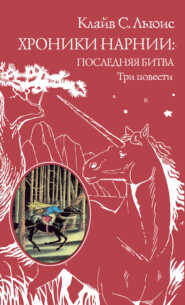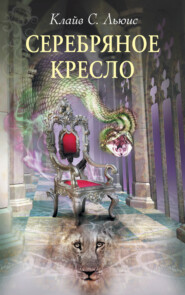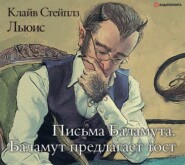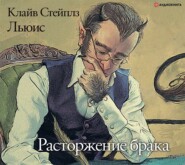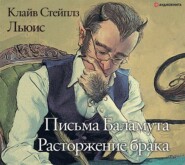По всем вопросам обращайтесь на: info@litportal.ru
(©) 2003-2024.
✖
Christian Reflections
Настройки чтения
Размер шрифта
Высота строк
Поля
Christian Reflections
C. S. Lewis
A collection of Lewis’s essays against ‘the new morality’ – a fine collection representing Lewis at his most brilliant.Published shortly after his death, aiming to make available some of his writings which were not at that time publicly accessible, and to counter the prevailing new morality of the sixties, ‘Christian Reflections’ gives a robust defence of the Christian Gospel.Now, fifty years later, when Christian communities are, in our own day, struggling to come to terms with a shifting morality, this little volume will be a comforting reminder of the never-changing truths of the faith.As ever, Lewis’s clear and eloquent mind gives plenty of food for thought, especially as he aims his intellectual ammunition at the modern myths still so prevalent in our post-modern culture.
COPYRIGHT (#u3b8ae99a-de0e-58e1-9a05-eef5af6e8e73)
William Collins
An imprint of HarperCollinsPublishers
1 London Bridge Street
London SE1 9GF
www.WilliamCollinsBooks.com (http://www.WilliamCollinsBooks.com)
1
Copyright © 1967 by C. S. Lewis Pte Ltd.
Copyright renewed 1973 C. S. Lewis Pte Ltd
This ebook first published by William Collins in 2017
A catalogue record for this book is available from the British Library
All rights reserved under International and Pan-American Copyright Conventions. By payment of the required fees, you have been granted the non-exclusive, non-transferable right to access and read the text of this e-book on screen. No part of this text may be reproduced, transmitted, downloaded, decompiled, reverse engineered, or stored in or introduced into any information storage and retrieval system, in any form or by any means, whether electronic or mechanical, now known or hereafter invented, without the express written permission of HarperCollins.
Source ISBN 9780008203856
Ebook Edition © December 2016 ISBN: 9780008228552
Version: 2016-12-15
CONTENTS
Cover (#u4d786a5b-5734-5751-96fb-723d0e33cd19)
Title Page (#uc78a61ac-c5db-5108-b92a-f53311c74239)
Copyright (#ulink_6432ae0f-c427-521c-981e-22c1d3210795)
Preface by Walter Hooper (#ulink_f644654a-9d20-52e8-b173-845750e149ad)
Christianity and Literature (#ulink_6574ddee-3f13-5a7b-9144-fb624c0f8570)
Christianity and Culture (#ulink_72a364de-48ed-5cae-8ece-05b88a46432c)
Religion: Reality or Substitute? (#ulink_78f906ca-13ab-597b-a2dd-449ed7593e6a)
On Ethics (#litres_trial_promo)
De Futilitate (#litres_trial_promo)
The Poison of Subjectivism (#litres_trial_promo)
The Funeral of a Great Myth (#litres_trial_promo)
On Church Music (#litres_trial_promo)
Historicism (#litres_trial_promo)
The Psalms (#litres_trial_promo)
The Language of Religion (#litres_trial_promo)
Petitionary Prayer: A Problem Without an Answer (#litres_trial_promo)
Fern-seed and Elephants (#litres_trial_promo)
The Seeing Eye (#litres_trial_promo)
About the Author (#litres_trial_promo)
Other Books By (#litres_trial_promo)
About the Publisher (#litres_trial_promo)
PREFACE (#ulink_9e4b42b9-673c-5f57-a2e4-0ec60c970415)
We were talking one day in 1963, C. S. Lewis and I, about the ‘resurrection’ of literary works. He mentioned Sir Walter Scott as one of his favourite authors whose books had gone out of fashion, but which appeared to be undergoing just such a resurrection. When I predicted that his own books would suffer no decline, he cautioned me against putting too high a value on them. Indeed, he tried to modulate my enthusiasm by pointing out that after an author’s death the general ‘rule’ is that the sales of his books fall drastically and eventually dry up altogether. ‘But sometimes – not by any means always –’, he said, ‘an author’s works undergo a kind of “resurrection”. But that is something no author, alive or dead, can count on.’
A literary historian, Lewis was naturally familiar with this phenomenon. He cherished no undue optimism as to what would happen to his books, and thus his frequent but gentle admonitions when I praised them more than he felt they deserved, and certainly more than made him comfortable. The truth is that Lewis was almost without opinions regarding the value of his writings. In so far as he was ‘worried’ about their future, it was simply that if the sales of his books stopped, and he died first, his elder brother Warren might find it difficult to survive.
A man of such remarkable astuteness, it must seem to many a wonder that C. S. Lewis could have been so unprophetic about the enduring success of his own books – such a glaring exception to the ‘rule’ he spoke of. But those familiar with his life will recall that Lewis was always more interested in writing and arguing for truth, whatever his subject, than in what he might become as a result of it. In this sense, he perfectly fulfilled what, in his essay on ‘Christianity and Literature’, he believed to be the proper attitude of a Christian author towards his own works: ‘Of every idea and of every method he will ask not “Is it mine?” but “Is it good?”’
While he seemed oblivious to the good he had himself given the world, he was by no means oblivious of the harm which has resulted from the widespread apostasy of the clergy, the cant and slush talked by the liberalizing ‘intelligentsia’ and the general lunacy of the world. Lewis certainly knew his place in all this, seeing himself as a Christian layman committed to explaining and defending what he called that ‘enormous common ground’ of belief which, by God’s mercy, exists at the centre of most Christian communions.
Talking about the spiritual bankruptcy we saw around us, Lewis said to me, ‘Our civilization was built upon Christian morals and nourished by the Faith of the Apostles. It was rather like a huge bank account to which many contributed and which everyone has drawn upon. Now, we know that you cannot go on writing cheques on an account unless you continue to add to its capital. The trouble is that, without adding to that capital, we continue to write cheques. One day that capital will run out.’ An apt analogy, it was nevertheless an unusual one coming from a man who was so extraordinarily free with his time and who regularly gave away more than two-thirds of his income to charity.
But be that as it may. Looking back, I realize that while I have always taken seriously Lewis’s fear of our spiritual ‘capital’ running out, nothing he said about the possibility of the demise of his books ever made much of an impression on me. Working in team with my fellow-trustee of the Estate, Owen Barfield, we have sought to make everything Lewis published or left unpublished available to as wide a public as possible. A public, incidentally, which has made itself known to us by the many thousands of letters of gratitude and encouragement we have received over the last sixteen years since Lewis died. What would have happened if Mr Barfield and I had not persevered we shall never know with any exactness.
What we are in no doubt about is that Lewis’s achievements, judging from the rapidly increasing sales of his books, have been spectacular. So spectacular that it has amounted to, if not a ‘resurrection’, at least a renaissance of Christian thought.
This volume of Christian ‘Reflections’ was first published in 1967 during a temporary lull in the sales of Lewis’s theological works when the modernist theologians were trotting out innumerable books on ‘situation ethics’ and the ‘new morality’, books which anyone familiar with the New Testament as well as the past will instantly recognize as the old immorality in a new dress. The ruinous effects of their works we already know, but the ‘innovators’ – as Lewis called them – have now gone even further in seeking to provide for individual and universal ‘happiness’ by the dethronement of traditional values, jettisoning truth and reality from their vocabulary and philosophy.
Lewis had long ago seen it coming. And now, over against the innovators stands the monumental achievement of C. S. Lewis which has been able not only to withstand everything thrown against it, but to instruct and steady those who seek the truth. The purveyors of the new ‘happiness’ and ‘liberation’, unable to ignore Lewis’s supreme intelligence and a precision of language which enabled him to say exactly what he meant, claim that he belonged to the traditions of an earlier century. This, to Lewis, was a very old dodge and his name for it was ‘chronological snobbery’ which is the uncritical acceptance of almost anything merely because it is ‘modern’. The truth is that it is our century which has gone badly wrong, and is itself very much an ‘exception’. Indeed, if one read nothing other than Lewis’s essay on ‘The Poison of Subjectivism’ he would see how well Lewis understood that little portion of human history called ‘the present age’ and how much he did to correct its faults.
But Lewis’s defence of that ‘enormous common ground’ – what he called ‘mere Christianity’ – was colourfully varied, depending on the audience he was addressing. This collection is, therefore, of necessity somewhat heterogeneous. However, as most readers have come to appreciate, it was to a large extent this talent of approaching the truth from such a variety of angles which has made him such an interesting and valuable writer.
C. S. Lewis
A collection of Lewis’s essays against ‘the new morality’ – a fine collection representing Lewis at his most brilliant.Published shortly after his death, aiming to make available some of his writings which were not at that time publicly accessible, and to counter the prevailing new morality of the sixties, ‘Christian Reflections’ gives a robust defence of the Christian Gospel.Now, fifty years later, when Christian communities are, in our own day, struggling to come to terms with a shifting morality, this little volume will be a comforting reminder of the never-changing truths of the faith.As ever, Lewis’s clear and eloquent mind gives plenty of food for thought, especially as he aims his intellectual ammunition at the modern myths still so prevalent in our post-modern culture.
COPYRIGHT (#u3b8ae99a-de0e-58e1-9a05-eef5af6e8e73)
William Collins
An imprint of HarperCollinsPublishers
1 London Bridge Street
London SE1 9GF
www.WilliamCollinsBooks.com (http://www.WilliamCollinsBooks.com)
1
Copyright © 1967 by C. S. Lewis Pte Ltd.
Copyright renewed 1973 C. S. Lewis Pte Ltd
This ebook first published by William Collins in 2017
A catalogue record for this book is available from the British Library
All rights reserved under International and Pan-American Copyright Conventions. By payment of the required fees, you have been granted the non-exclusive, non-transferable right to access and read the text of this e-book on screen. No part of this text may be reproduced, transmitted, downloaded, decompiled, reverse engineered, or stored in or introduced into any information storage and retrieval system, in any form or by any means, whether electronic or mechanical, now known or hereafter invented, without the express written permission of HarperCollins.
Source ISBN 9780008203856
Ebook Edition © December 2016 ISBN: 9780008228552
Version: 2016-12-15
CONTENTS
Cover (#u4d786a5b-5734-5751-96fb-723d0e33cd19)
Title Page (#uc78a61ac-c5db-5108-b92a-f53311c74239)
Copyright (#ulink_6432ae0f-c427-521c-981e-22c1d3210795)
Preface by Walter Hooper (#ulink_f644654a-9d20-52e8-b173-845750e149ad)
Christianity and Literature (#ulink_6574ddee-3f13-5a7b-9144-fb624c0f8570)
Christianity and Culture (#ulink_72a364de-48ed-5cae-8ece-05b88a46432c)
Religion: Reality or Substitute? (#ulink_78f906ca-13ab-597b-a2dd-449ed7593e6a)
On Ethics (#litres_trial_promo)
De Futilitate (#litres_trial_promo)
The Poison of Subjectivism (#litres_trial_promo)
The Funeral of a Great Myth (#litres_trial_promo)
On Church Music (#litres_trial_promo)
Historicism (#litres_trial_promo)
The Psalms (#litres_trial_promo)
The Language of Religion (#litres_trial_promo)
Petitionary Prayer: A Problem Without an Answer (#litres_trial_promo)
Fern-seed and Elephants (#litres_trial_promo)
The Seeing Eye (#litres_trial_promo)
About the Author (#litres_trial_promo)
Other Books By (#litres_trial_promo)
About the Publisher (#litres_trial_promo)
PREFACE (#ulink_9e4b42b9-673c-5f57-a2e4-0ec60c970415)
We were talking one day in 1963, C. S. Lewis and I, about the ‘resurrection’ of literary works. He mentioned Sir Walter Scott as one of his favourite authors whose books had gone out of fashion, but which appeared to be undergoing just such a resurrection. When I predicted that his own books would suffer no decline, he cautioned me against putting too high a value on them. Indeed, he tried to modulate my enthusiasm by pointing out that after an author’s death the general ‘rule’ is that the sales of his books fall drastically and eventually dry up altogether. ‘But sometimes – not by any means always –’, he said, ‘an author’s works undergo a kind of “resurrection”. But that is something no author, alive or dead, can count on.’
A literary historian, Lewis was naturally familiar with this phenomenon. He cherished no undue optimism as to what would happen to his books, and thus his frequent but gentle admonitions when I praised them more than he felt they deserved, and certainly more than made him comfortable. The truth is that Lewis was almost without opinions regarding the value of his writings. In so far as he was ‘worried’ about their future, it was simply that if the sales of his books stopped, and he died first, his elder brother Warren might find it difficult to survive.
A man of such remarkable astuteness, it must seem to many a wonder that C. S. Lewis could have been so unprophetic about the enduring success of his own books – such a glaring exception to the ‘rule’ he spoke of. But those familiar with his life will recall that Lewis was always more interested in writing and arguing for truth, whatever his subject, than in what he might become as a result of it. In this sense, he perfectly fulfilled what, in his essay on ‘Christianity and Literature’, he believed to be the proper attitude of a Christian author towards his own works: ‘Of every idea and of every method he will ask not “Is it mine?” but “Is it good?”’
While he seemed oblivious to the good he had himself given the world, he was by no means oblivious of the harm which has resulted from the widespread apostasy of the clergy, the cant and slush talked by the liberalizing ‘intelligentsia’ and the general lunacy of the world. Lewis certainly knew his place in all this, seeing himself as a Christian layman committed to explaining and defending what he called that ‘enormous common ground’ of belief which, by God’s mercy, exists at the centre of most Christian communions.
Talking about the spiritual bankruptcy we saw around us, Lewis said to me, ‘Our civilization was built upon Christian morals and nourished by the Faith of the Apostles. It was rather like a huge bank account to which many contributed and which everyone has drawn upon. Now, we know that you cannot go on writing cheques on an account unless you continue to add to its capital. The trouble is that, without adding to that capital, we continue to write cheques. One day that capital will run out.’ An apt analogy, it was nevertheless an unusual one coming from a man who was so extraordinarily free with his time and who regularly gave away more than two-thirds of his income to charity.
But be that as it may. Looking back, I realize that while I have always taken seriously Lewis’s fear of our spiritual ‘capital’ running out, nothing he said about the possibility of the demise of his books ever made much of an impression on me. Working in team with my fellow-trustee of the Estate, Owen Barfield, we have sought to make everything Lewis published or left unpublished available to as wide a public as possible. A public, incidentally, which has made itself known to us by the many thousands of letters of gratitude and encouragement we have received over the last sixteen years since Lewis died. What would have happened if Mr Barfield and I had not persevered we shall never know with any exactness.
What we are in no doubt about is that Lewis’s achievements, judging from the rapidly increasing sales of his books, have been spectacular. So spectacular that it has amounted to, if not a ‘resurrection’, at least a renaissance of Christian thought.
This volume of Christian ‘Reflections’ was first published in 1967 during a temporary lull in the sales of Lewis’s theological works when the modernist theologians were trotting out innumerable books on ‘situation ethics’ and the ‘new morality’, books which anyone familiar with the New Testament as well as the past will instantly recognize as the old immorality in a new dress. The ruinous effects of their works we already know, but the ‘innovators’ – as Lewis called them – have now gone even further in seeking to provide for individual and universal ‘happiness’ by the dethronement of traditional values, jettisoning truth and reality from their vocabulary and philosophy.
Lewis had long ago seen it coming. And now, over against the innovators stands the monumental achievement of C. S. Lewis which has been able not only to withstand everything thrown against it, but to instruct and steady those who seek the truth. The purveyors of the new ‘happiness’ and ‘liberation’, unable to ignore Lewis’s supreme intelligence and a precision of language which enabled him to say exactly what he meant, claim that he belonged to the traditions of an earlier century. This, to Lewis, was a very old dodge and his name for it was ‘chronological snobbery’ which is the uncritical acceptance of almost anything merely because it is ‘modern’. The truth is that it is our century which has gone badly wrong, and is itself very much an ‘exception’. Indeed, if one read nothing other than Lewis’s essay on ‘The Poison of Subjectivism’ he would see how well Lewis understood that little portion of human history called ‘the present age’ and how much he did to correct its faults.
But Lewis’s defence of that ‘enormous common ground’ – what he called ‘mere Christianity’ – was colourfully varied, depending on the audience he was addressing. This collection is, therefore, of necessity somewhat heterogeneous. However, as most readers have come to appreciate, it was to a large extent this talent of approaching the truth from such a variety of angles which has made him such an interesting and valuable writer.








